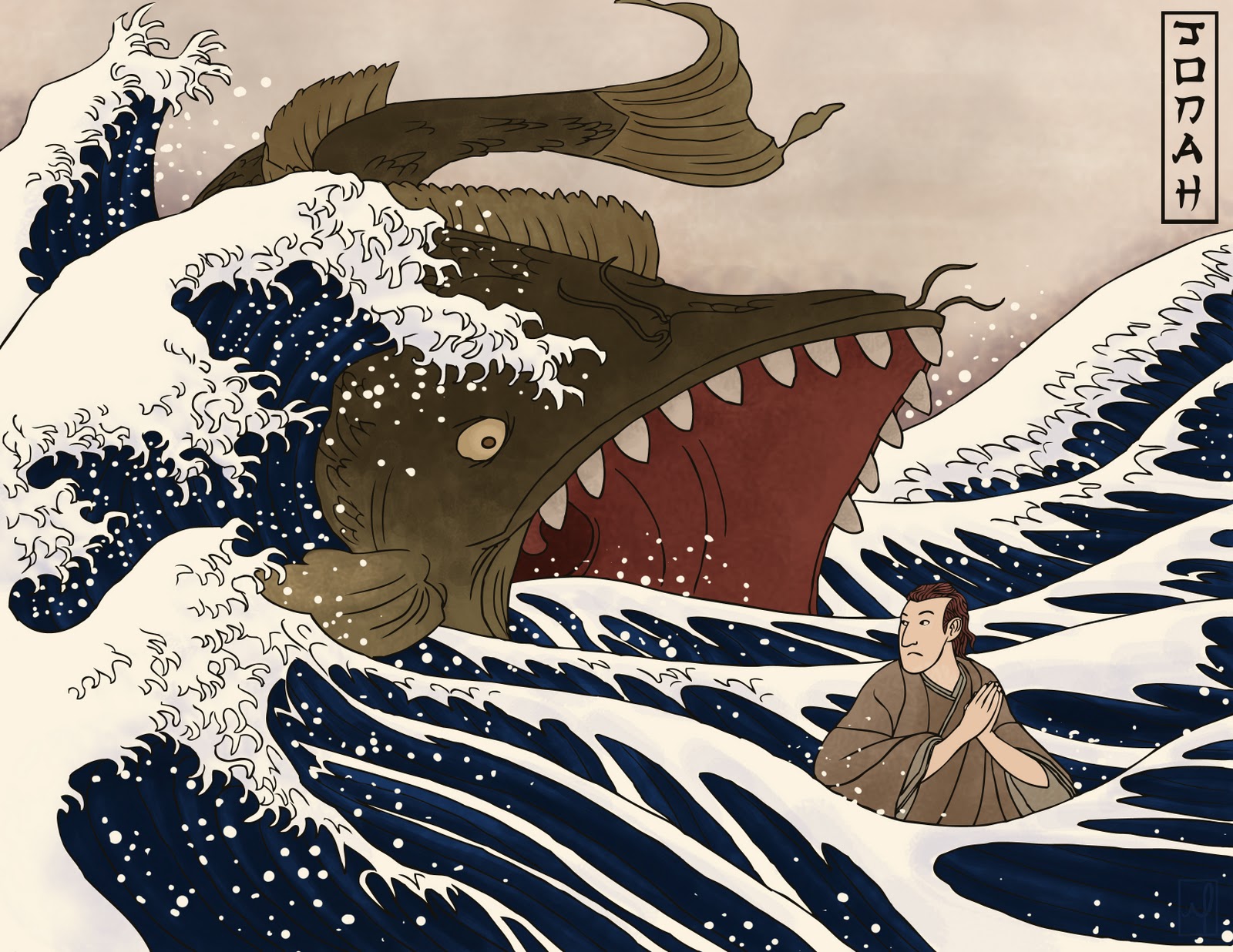
You only understand Jonah if you’ve learned to hate, if life experience has educated you in heartfelt, instinctive, focused hostility. And you only understand Jonah’s God if you are prepared to unlearn hatred, and by a painful inner re-orientation accept that God is not in the hate business.
Jonah hated Nineveh – ‘the great city’ famed for terrorist atrocities, centre of a brutal, organised, military machine – merciless, meticulous, arrogant, conqueror and oppressor of Israel. The equivalent today isn't hard to imagine – where there is religious hatred, ancient tribal enmities and people whose suffering and oppression have educated them into hatred, there we come near to the same mindset – that wants to obliterate the enemy. The combination of terror and anger, of hatred and hopelessness, produces that lethal cocktail we call terrorism – and it flourishes in a world sold on consumerism, militarism and polarisation of extremes, two poles arcing in violence
Jonah stands for those who want to see power get what it deserves. Those of us who pray that cruelty and violence will get its payback. So you’d think that a word from the Lord to preach against the wickedness of the great city would have Jonah book a first class overnight camel to be the first to tell Nineveh they’d had it. God’s prophet being sent to tell the enemy God is going to zap you. Permission to hate, to ridicule, to gloat, to celebrate the anguish of the enemy.
So why did Jonah run in the exact opposite direction? Why miss out on the vengeance he’d prayed for? Why not takes his hate and use it to make him an eloquent herald of doom? V 3 which tells of Jonah running in the opposite direction fro Nineveh only makes sense when you come to 4.2:
He prayed to the Lord, “Isn’t this what I said, Lord, when I was still at home? That is what I tried to forestall by fleeing to Tarshish. I knew that you are a gracious and compassionate God, slow to anger and abounding in love, a God who relents from sending calamity."
Jonah isn’t disobedient – he’s in denial. It isn’t that he doesn’t believe enough in God – he believes too much! He knows God too well, his theology of God is so true it’s a liability. He runs in the opposite direction because he senses God is going to do the opposite of what Jonah wants. There’s a million to one chance that Nineveh will repent – and if that happens, there isn’t one chance in a million that God won’t be merciful. It is an absolute certainty that God would be slow to anger and abounding in love. And that isn’t fair.
For Jonah that is theologically inevitable and emotionally unacceptable. Abounding in love, slow to anger, this kind of God isn't what you need when all you want is vengeance. It would be absolutely scandalous – that a vast city built on the blood and tears of the conquered should turn from their wickedness and find mercy shows there is no justice in the universe. "Be it not so Lord" means "Don;t be who you are Lord!".
So Jonah won’t take that million to one chance. And as this story unfolds it isn’t that Jonah will, learn a new theology of God. He will learn that no matter what his theology, God remains sovereign in mercy and steadfast love. He will witness God's involvement in the deepest, hardest, most heartbreaking, experiences of his life. And he’ll learn about God’s generosity and human grievances; he’ll learn that mercy is greater than murder; that compassion not cruelty is God’s way; all that and more he’ll learn. This scandalous story touches on some of the most important things those who believe in the God of the Bible will ever need to know about themselves, God, and how God deals with those different "others" who share this planet with us.
